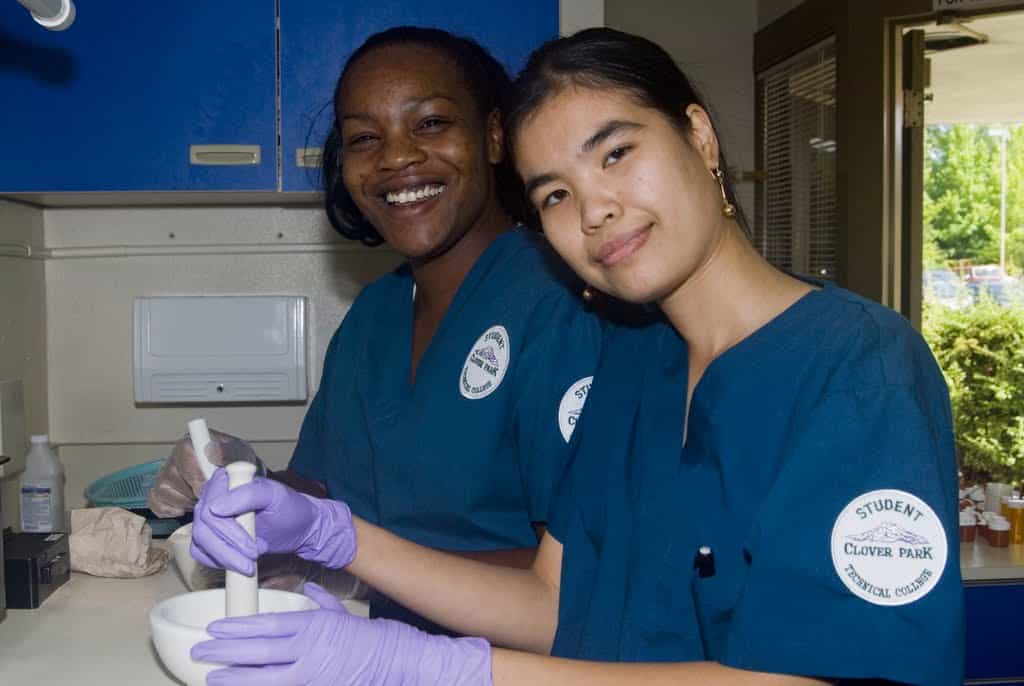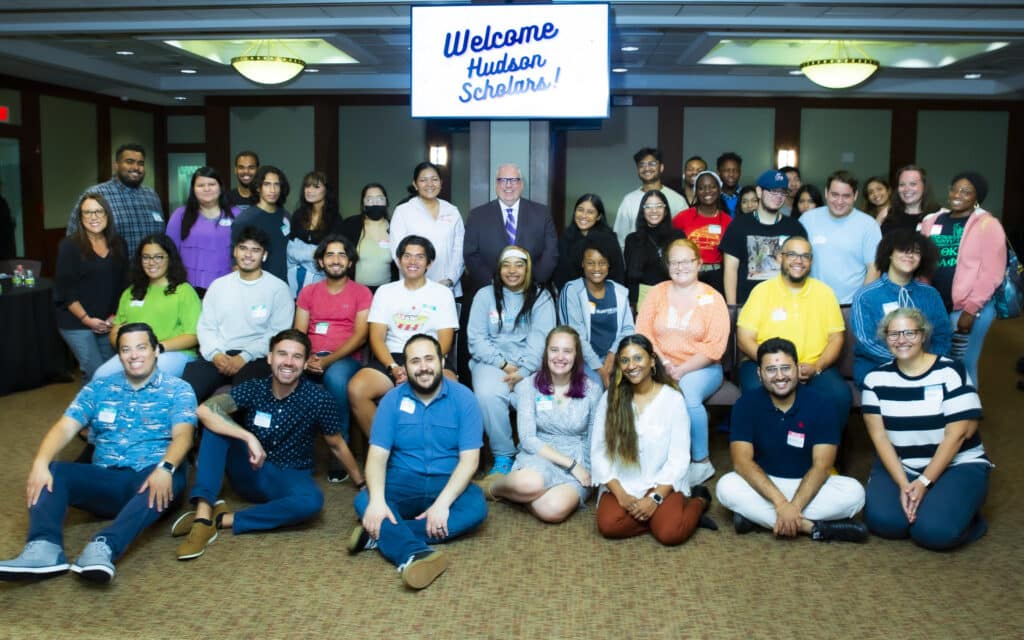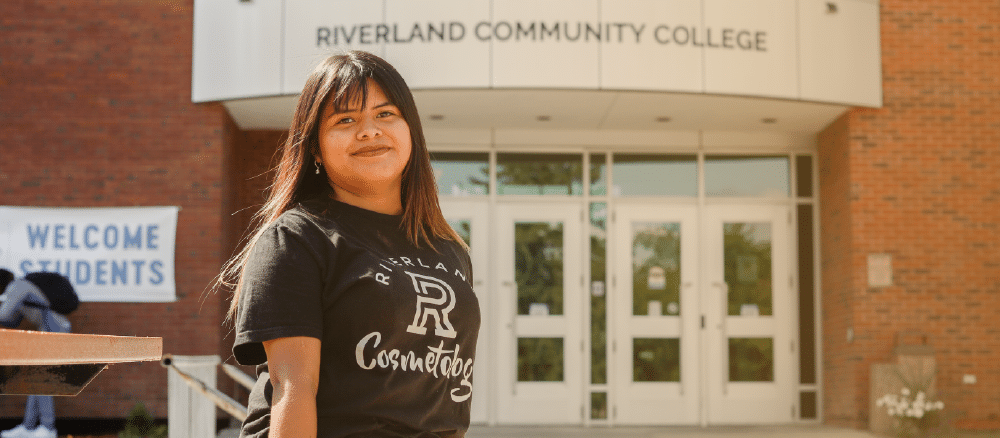This summer, leadership teams from eight colleges convened in Los Angeles for an intensive retreat focused on advancing racial equity at their institutions. The colleges are part of the Racial Equity Leadership Academy, a joint initiative from Achieving the Dream and the USC Race and Equity Center that supports teams of leaders as they develop transformative racial equity change efforts on campus.
We talked to the RELA teams about their motivation behind joining the program, their goals for their institutions, and how they hope this work will affect their broader communities. Keep reading to learn more about Clover Park Technical College, Hudson County Community College, and Northeast Wisconsin Technical College.
This is the first installment in a short series — stay tuned and check our website to read about the other institutions in the RELA 2.0 cohort.
Clover Park Technical College
Clover Park Technical College (CPTC) is located in Lakewood, Washington, about 40 miles south of Seattle. The college serves approximately 5,800 students and has been part of the ATD Network since 2011.
Dr. Joyce Loveday, president of CPTC, said the college joined RELA to gain access to a cohort of like-minded institutions “with the same intense focus on increasing equity of student outcomes in the two-year sector and … produce tangible plans for the future of the work.”
While CPTC has always worked to serve its student body equitably, racial equity has become a more explicit focus since 2019 when the board of directors added equity as a fourth pillar of institutional performance. CPTC was also the first college in Washington to hire a senior equity, diversity, and inclusion (EDI) officer.
CPTC’s focus during RELA will be on supporting access, success, and completion for Black male students—a focus for many institutions in this cohort. Specifically, CPTC aims to improve the Black male experience in the trades. “The broader impacts of this program will hopefully extend post-graduation … and provide Black tradesmen with the support and resources they need to thrive in their employment,” said President Loveday.
The CPTC team recognizes that this goal will not just affect the students the institution serves: Improving Black male success and economic mobility will have multigenerational impacts.
“CPTC’s mission has been educating tomorrow’s workforce,” President Loveday explained. Faculty and staff “recognize the weight and import of the work they do every day to change the socioeconomic trajectory of families in the community tomorrow. Today’s low-income first-generation student-parent raises their children to know that college and gainful employment are not only possible, but likely for them.”
For the same reason, CPTC is focused on strategic partnerships with local employers. “Working directly with employers and unions to increase the diversity of their ranks will have multigenerational impacts for every aspiring tradesperson of color looking to make their way into historically exclusionary careers,” President Loveday said. “Generations to come will benefit from having access to, success in, and role models from trades and technical careers.”
“CPTC has both the opportunity and responsibility to be a strong change agent focused on eliminating inequities and removing barriers that impact success. … As college leaders, it is imperative that we create new structures designed to support the most marginalized individuals in achieving financial and social equity and to help them thrive in our community.”
— Dr. Joyce Loveday, president of Clover Park Technical College
Hudson County Community College
Hudson County Community College (HCCC) is located in Jersey City, New Jersey. This urban institution serving more than 11,000 students has been in the ATD Network since 2019 and earned Leader College status in 2023.
“HCCC serves one of the most ethnically diverse areas of the United States,” the RELA team reported, with students born in more than 100 countries and speaking 29 different languages. Based on national, regional, and internal data, the college joined RELA to focus on Black male student success.
“By decreasing retention and completion gaps of Black and African American males, our efforts would promote the individual development of student participants, expand interest in the community to pursue higher education, while also compounding social mobility within the community,” a member of the team said.
Advancing racial equity requires cultural change. HCCC’s leadership team noted the importance of change starting from the top: “By promoting an institutional climate where faculty and staff feel like insiders and investing in professional development, campus leaders can position faculty and staff to lead in developing innovative and best practices programs at the college,” the team said.
“Over the last 50 years, the enrollment percentage share of people of color has increased, and community colleges are responsible for providing environments, systems, and processes where traditionally minoritized students feel at home and can thrive.”
— Yeurys Pujols, vice president for diversity, equity, and inclusion
Northeast Wisconsin Technical College
Northeast Wisconsin Technical College (NWTC) is located in Green Bay, Wisconsin. NWTC has been active in the ATD Network since 2011, earning the prestigious Leah Meyer Austin Award in 2021. The college serves about 7,500 students, nearly half of whom identify as first-generation learners.
The college’s RELA team said NWTC joined the Racial Equity Leadership Academy “to make racial equity an inherent part of its college values and create a culture that fosters inclusion and belonging for everyone.”
The college has developed a few specific goals to address “the urgent needs of populations historically faced with barriers to success in higher education.” Specifically, NWTC “aims to increase enrollment and success for Latinx students as the Latinx population grows in the region. The college also hopes to strengthen partnerships with the Oneida Nation and Menominee Tribe to better serve Indigenous students.
The team also stressed the importance of data-informed decision-making. Review of disaggregated data helped NWTC identify racial equity gaps in students who complete programs leading to high-wage jobs. Their findings led to an institutional goal to increase enrollment for students of color in high-wage programs.
“By supporting students entering and completing programs that lead to high-wage professions, NWTC is working towards one of its strategic goals of promoting economic growth through family-sustaining career attainment,” the college’s RELA team explained. “Additionally, the College recognizes its role in serving a large rural region with a rapidly changing population. By creating an inclusive environment that recognizes the cultural wealth that communities of color bring to neighborhoods, schools, and workplaces in the district, NWTC is playing a role in making the region a more inclusive place.”
“A strong, vibrant community requires a successful and fulfilling life for every one of its members. To achieve this goal, we must remove barriers to education and career attainment to allow every person to forge their own journey. Everyone has different lived experiences that impact our choices, and we know that those vary widely between our student demographics. As a society, community, and individual, we all have the moral responsibility of upholding the sanctity of human life, regardless of one’s identity or where their journey began.”
— Dr. Jeffrey Rafn, president of Northeast Wisconsin Technical College (now retired)
The Racial Equity Leadership Academy (RELA) is an intensive institute designed to support teams of leaders as they develop bold, strategic racial equity plans and implement actionable change efforts at their institutions. RELA is made possible in part by the generous gift given to ATD from philanthropist MacKenzie Scott and additional foundations. Learn more



